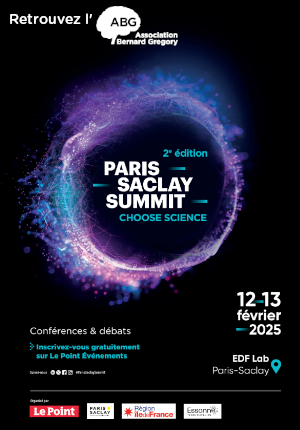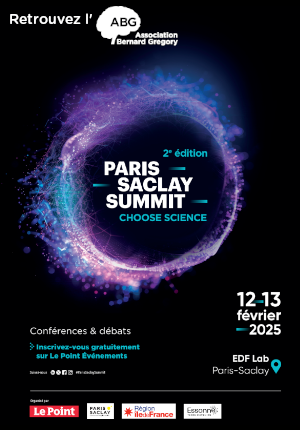Implementation of an innovative photobioreactor for the co-culture of microalgae
| ABG-127195 | Master internship | 6 months | 635 |
| 2024-11-25 |
- Process engineering
- Biotechnology
Employer organisation
The internship will be carried out at LGPM-Biotechnology Chair of CentraleSupélec on the POMACLE site within the “Biotransformation” team. Scientific and technical supervision will be provided by researchers from LGPM-Biotechnology Chair of CentraleSupélec (Paris-Saclay University) and GEPEA (Nantes University) laboratories.
The Biotechnology Chair of CentraleSupélec is affiliated with the Process and Materials Engineering Laboratory (LGPM, EA 4038, University of Paris-Saclay) and hosted by the European Center for Biotechnology and Bioeconomy (CEBB). The Biotechnology Chair of CentraleSupélec brings together more than 30 researchers with strong expertise in Engineering Sciences dedicated to the transformation of biomass, particularly microalgal. The Biotransformation team works on the design and optimization of innovative biotechnological processes, the control and exploitation of microalgae, in order to produce molecules with medium and high added value for various industrial applications.
The internship will be located at the European Center for Biotechnology and Bioeconomy (CEBB) in POMACLE (Marne, 51). The internship will last 6 months and can start between February and March 2025. The trainee will receive a gratification according to the Lab salary scale.
Description
Context
Microalgae are unicellular photosynthetic organisms with high genetic diversity. Their cellular
composition and their ability to adapt their metabolism to environmental conditions mean that they are
increasingly used in biotechnology to produce compounds of interest such as proteins, lipids,
polysaccharides and pigments. They can also bioremediate waste waters with their ability to
metabolize pollutants such as nitrates, phosphates, and certain heavy metals. Some molecules produced
by these microalgae (O2, small organic molecules, etc.) can be metabolized by other types of
fermentative microorganisms, such as bacteria or yeasts. The latter, in return, will produce molecules
of interest (CO2, inorganic ions, vitamins, etc.) for microalgae. Cultivating these species within the
same system makes it possible to develop a symbiosis with numerous benefits (increased productivity
of molecules of interest, more effective bioremediation, compactness of culture system, etc.). Cocultures
of microalgae and bacteria/yeast can promote cell growth and the release into the biological
environment of extracellular compounds with high added value. The establishment of
interactions/communications between the microorganisms contributes to this intensification of the
cultivation process. Biomass and extracellular compounds can be used to develop new pharmaceutical,
cosmetic and food bioproducts (pre-biotic, skin care, antibacterial, etc.). These mixed cultures can also
be used for water treatment. The internship is part of the collaboration between the Biotechnology
Chair of CentraleSupélec and the GEPEA laboratory for the development of innovative and hybrid
systems for the valorization of microalgae.
Objective of the internship
The innovative aspect of this project is to work on a type of new photobioreactor allowing the
co-cultivation of several species of microorganisms within the same system. The objective of this
internship is to set up an integrated and intensified process allowing simultaneously the cultivation of
microalgae and bacteria/yeast/microalgae continuously and at high cell density. An innovative system
will be set up in order to evaluate its interest with a view to intensifying the culture process and
extraction of extracellular compounds (increased cell density and secretion of extracellular
compounds).
The intern will have to cultivate microalgae/bacteria (or yeast/microalgae) from the seeding of the
crops to their harvesting. To do so, different culture conditions could be tested (inoculum
concentrations, culture medium composition, abiotic parameters, temperature, light intensity, etc.) and
the growth of biomass (by optical density, dry matter) and the production of targeted molecules (by
colorimetric assays or HPLC) will be monitored.
The performance of the process will be evaluated in terms of:
- Production yield of biomass and extracellular compounds,
- Kinetics of biomass growth and release of extracellular compounds,
- Characterization of biomass and culture media.
Profile
Student in the final year of Master’s degree (M2) or in an engineering school with a specialization in (Bio)Process Engineering, Biotechnologies and Microbiology.
Bioprocesses and analytical methods knowledge
Technical skills in lab work (operation under sterile conditions)
Knowledge and/or experience in microalgae and/or other microorganisms (bacteria/yeast) cultivation (photobioreactors or similar processes: assembly, operation and maintenance).
Desired qualities: rigor, autonomy, curiosity, ability to read scientific articles and write reports (French, English), teamwork.
Starting date
Vous avez déjà un compte ?
Nouvel utilisateur ?
Get ABG’s monthly newsletters including news, job offers, grants & fellowships and a selection of relevant events…
Discover our members
 CASDEN
CASDEN  MabDesign
MabDesign  ONERA - The French Aerospace Lab
ONERA - The French Aerospace Lab  Tecknowmetrix
Tecknowmetrix  MabDesign
MabDesign  SUEZ
SUEZ  CESI
CESI  Nokia Bell Labs France
Nokia Bell Labs France  Ifremer
Ifremer  ADEME
ADEME  ANRT
ANRT  Groupe AFNOR - Association française de normalisation
Groupe AFNOR - Association française de normalisation  Laboratoire National de Métrologie et d'Essais - LNE
Laboratoire National de Métrologie et d'Essais - LNE  PhDOOC
PhDOOC  TotalEnergies
TotalEnergies  Institut de Radioprotection et de Sureté Nucléaire - IRSN - Siège
Institut de Radioprotection et de Sureté Nucléaire - IRSN - Siège  Institut Sup'biotech de Paris
Institut Sup'biotech de Paris  Généthon
Généthon  Aérocentre, Pôle d'excellence régional
Aérocentre, Pôle d'excellence régional






